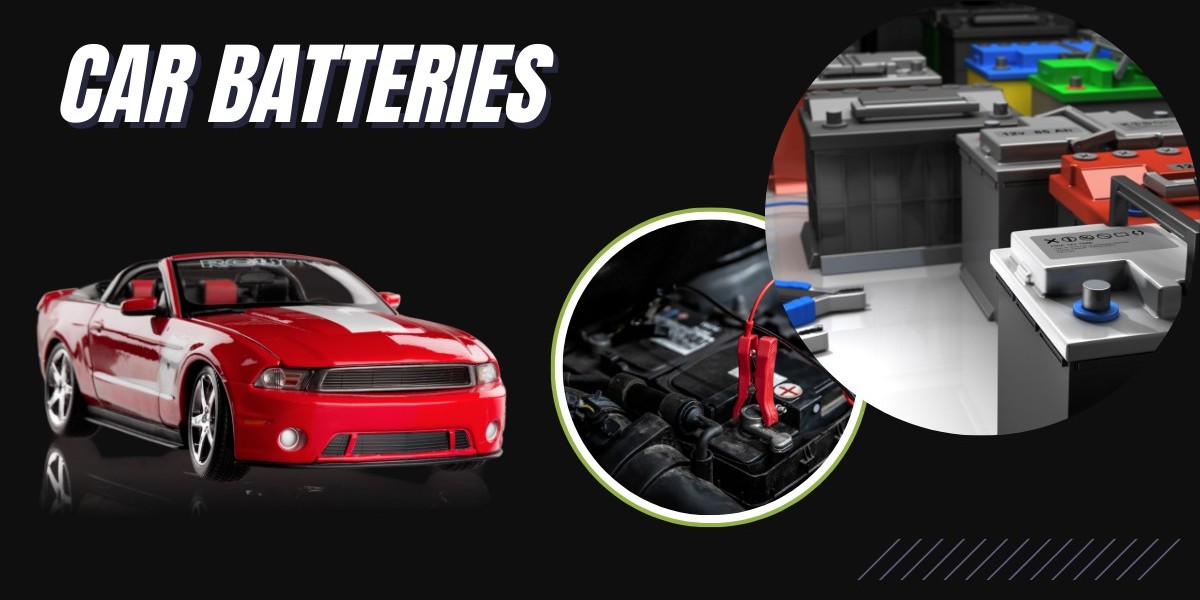Car batteries are the lifeblood of your vehicle, providing the energy needed to start the engine and power various systems. Whether you're driving a compact car or a heavy-duty truck, a reliable battery is essential for uninterrupted performance. This guide will cover everything you need to know about car batteries, including how they work, types available, maintenance tips, and more.
What Are Car Batteries and Why Are They Important?
At their core, car batteries are rechargeable devices that store and supply electrical energy to your vehicle. They ensure your car starts smoothly and support systems like lights, radio, and GPS. Without a functional battery, even the most sophisticated car won't run.
Quick Facts:
- Energy Source: Provides power to the starter motor, ignition system, and lights.
- Life Expectancy: Typically lasts between 3-5 years with proper maintenance.
- Market Size: The global car battery market was valued at $48.8 billion in 2022 and continues to grow.
How Do Car Batteries Work?
Understanding how car batteries function can help you troubleshoot common issues. These batteries operate through an electrochemical reaction that converts chemical energy into electrical energy. Lead-acid batteries, the most common type, use lead plates and sulfuric acid to create voltage.
Key Components:
- Positive and Negative Plates: Facilitate the flow of electrons.
- Electrolyte: A mixture of water and sulfuric acid that conducts electricity.
- Terminals: Connect the battery to the car's electrical system.
Types of Car Batteries
Choosing the right battery depends on your vehicle's needs and usage. Below are the most common types of car batteries:
1. Flooded Lead-Acid Batteries
- Most common and affordable.
- Requires regular maintenance like checking water levels.
2. Absorbent Glass Mat (AGM) Batteries
- Spill-proof and maintenance-free.
- Ideal for vehicles with start-stop technology.
3. Lithium-Ion Batteries
- Lightweight and energy-efficient.
- Common in hybrid and electric vehicles.
Comparison Table: Lead-Acid vs. Lithium-Ion
| Feature | Lead-Acid | Lithium-Ion |
|---|---|---|
| Cost | Low | High |
| Weight | Heavy | Light |
| Lifespan | 3-5 years | 7-10 years |
| Maintenance Required | Yes | No |
Signs Your Car Battery Needs Replacement
Recognizing when your battery is failing can save you from being stranded. Common indicators include:
- Slow Engine Crank: The engine struggles to start.
- Dim Lights: Headlights and dashboard lights appear weaker.
- Check Battery Light: Dashboard indicator illuminates.
- Corrosion: White or green residue on terminals.
How to Maintain Car Batteries for Longevity
Proper care ensures that your battery lasts its full lifespan. Here are some tips to keep your car battery in top condition:
- Clean Terminals: Remove corrosion with a mixture of baking soda and water.
- Test Regularly: Use a voltmeter to check battery charge levels.
- Avoid Short Trips: Frequent short drives prevent the battery from fully charging.
- Secure Mounting: Ensure the battery is tightly secured to avoid damage from vibrations.
Best Practices for Buying Car Batteries
When purchasing a new battery, consider the following factors to make an informed choice:
- Size and Compatibility: Ensure the battery fits your car's specifications.
- Cold Cranking Amps (CCA): Higher CCA ratings are better for cold climates.
- Warranty: Opt for a battery with a long warranty period.
- Brand Reputation: Reliable brands like Optima, Exide, and Bosch offer quality products.
How Weather Affects Car Battery Performance
Extreme temperatures, both hot and cold, can impact battery efficiency. High heat accelerates chemical reactions, causing quicker wear, while freezing temperatures reduce the battery's ability to deliver power.
Tips for Extreme Weather:
- In Summer: Park in shaded areas and check fluid levels frequently.
- In Winter: Invest in an insulation blanket to retain heat.
Eco-Friendly Alternatives: Recycling Car Batteries
Old car batteries contain hazardous materials but are highly recyclable. Recycling helps recover lead, plastic, and acid, reducing environmental harm.
Did You Know?
Over 99% of lead-acid batteries in the U.S. are recycled, making them one of the most recycled consumer products.
FAQs
What is the average lifespan of car batteries?
Most car batteries last between 3-5 years, but proper care can extend their life.
Can I replace a car battery myself?
Yes, but ensure you follow safety guidelines and choose the correct battery type for your vehicle.
What is the best car battery for cold climates?
AGM batteries or those with high CCA ratings are ideal for colder environments.
How often should I test my car battery?
Testing every 6 months is recommended to catch issues early.
Are all car batteries recyclable?
Yes, almost all types of car batteries are recyclable, making them eco-friendly.
Why do car batteries die prematurely?
Common reasons include frequent short trips, extreme temperatures, and leaving electrical components on when the engine is off.
Conclusion
A well-maintained car battery is crucial for reliable vehicle performance. From understanding different types to recognizing signs of wear, staying informed ensures that you’re prepared for any eventuality. As the market evolves, newer technologies like lithium-ion batteries promise even better performance.



